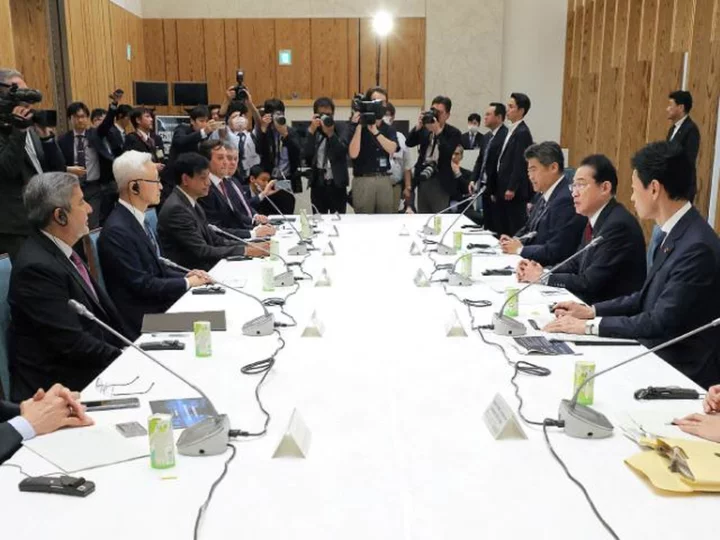Japanese Prime Minister Fumio Kishida said he welcomed and expected more investment from global chipmakers, after meeting top executives on Thursday before a Group of Seven summit.
China is set to be high on the agenda of the annual G7 leaders meeting that begins on Friday, with the United States increasingly urging its allies to counter the Asian giant's chip and advanced technology development.
Growing Taiwan and US tensions with China have brought serious challenges to the semiconductor industry. Taiwan is a major producer of chips used in everything from cars and smartphones to fighter jets.
Ensuring diversified, resilient supply chains is a key component of the economic security theme being emphasized by Japan at the talks, White House national security adviser Jake Sullivan told reporters on Air Force One.
Kishida told the executives, including those from Micron Technology Inc, Intel Corp and Taiwan Semiconductor Manufacturing Co (TSMC), that stabilizing supply chains would be a topic of discussion at the G7 talks in the western city of Hiroshima.
"I am very pleased with your positive attitude towards investment in Japan, and would like the government as a whole to work on further expanding direct investment in Japan and support the semiconductor industry," Kishida said.
An industry ministry official later said Kishida wanted to foster cooperation to strengthen semiconductor supply chains, while Industry Minister Yasutoshi Nishimura said Japan would use 1.3 trillion yen ($9.63 billion) of the supplementary budget from the last fiscal year to support its chip business.
In particular, Kumamoto prefecture in southwestern Japan is quickly becoming a hotbed for tech investment from companies including TSMC and Fujifilm Holdings Corp.
Micron said in a statement that it would bring extreme ultraviolet (EUV) technology to Japan, becoming the first semiconductor company to do so, and expected to invest up to 500 billion yen ($3.6 billion) with support from the Japanese government.
Bloomberg News reported the financial incentives would total about 200 billion yen.
An industry ministry official said no decision had been made on whether Japan would give a subsidy to Micron, but that one would be made as soon as possible.

